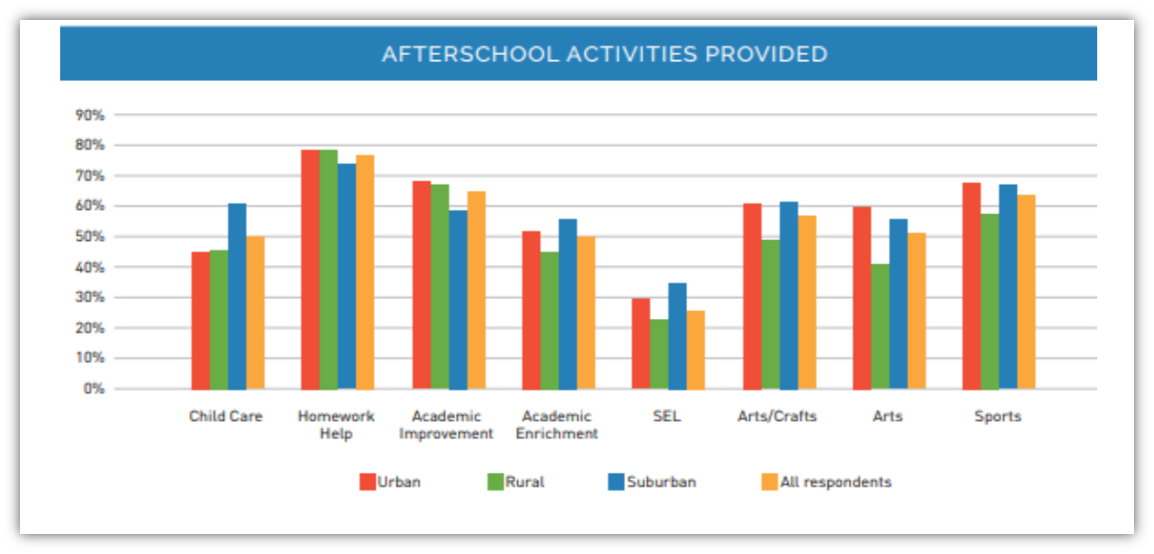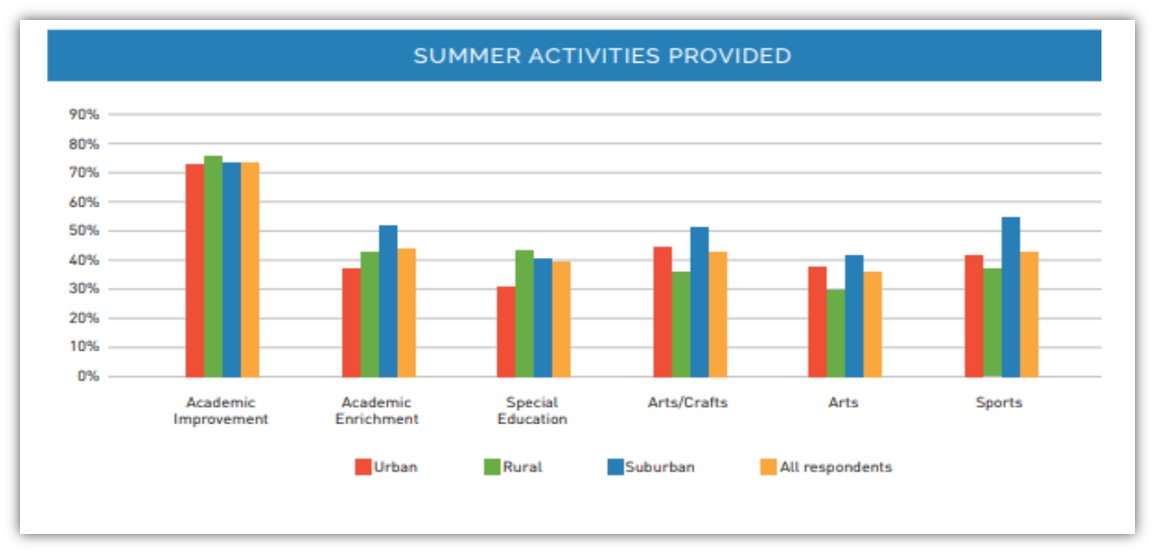The National Association of Elementary School Principals (NAESP) published a report in March 2018 that summarized a nationwide survey of Elementary School Principals to learn more about the activities offered in afterschool and summer learning programs and what principals want from these programs.
In March 2018, The National Association of Elementary School Principals (NAESP) and Afterschool and Summer Learning Resource Center, College of Charleston, released a report, “Beyond the Classroom: What Principals Want When It Comes to Afterschool and Summer Learning”, based on the findings of a survey that was sent out nationwide to elementary school principals. 1,217 principals across 38 states responded to the survey. The report is full of information on how afterschool and summer programs are perceived, what the hurdles are, and what the perceived successes are of these programs.
Afterschool Program Activities
Respondents are categorized on where their schools are located; Urban, Rural, and Suburban. Below is a chart that details what types of activities the afterschool programs offer:

The report found that most afterschool programs (77%) offered homework help as the most consistent activity. Next was academic improvement followed by sports, then arts and crafts.
3 Tips to Promote Your After School Program within Your Community
Summer Activities Offered
Summer learning programs were slightly different than the afterschool programs. During the summer months, most programs like to focus on academic improvement (81%) and academic enrichment activities such as STEM (72%).

The report does go on to discuss who is running out of school time (OST) programing and how it’s being funded. The majority of these programs are being run by the individual schools or the school district and most are primarily funded through tuition payments. When it came down to funding, school districts were the top source for funding afterschool programs.
Eleyo Module Benefits: Child Care
Some of the report findings are probably not surprising to the afterschool and summer learning program industry. Principals did say that if they had the resources, they would either enhance the current program offering or start a new one. The top priorities would be hiring qualified staff (58%) and curriculum planning and development (47%). Most afterschool programs would probably agree that if they had more time, they would encourage staff development and plan more enticing curriculum. Overall, the report shows that principals are on the same page as afterschool program coordinators and directors. By coming together, principals and OST staff could help raise awareness and funding for afterschool and summer learning programs.
SEE HOW ELEYO CAN SAVE YOU TIME